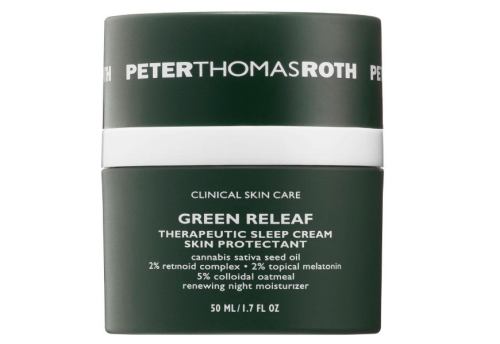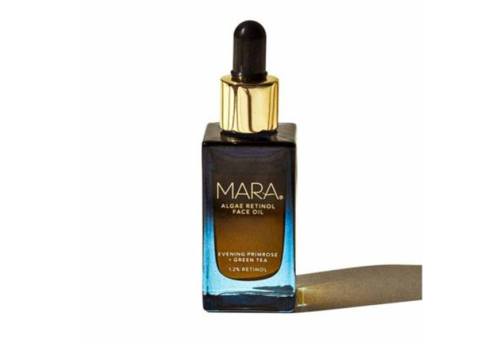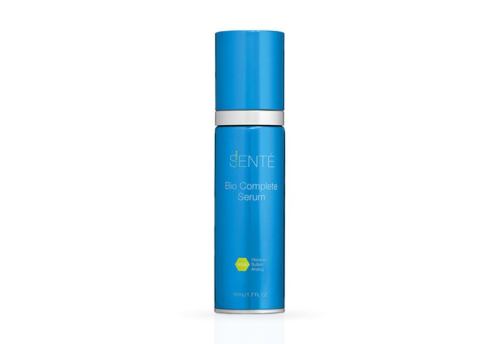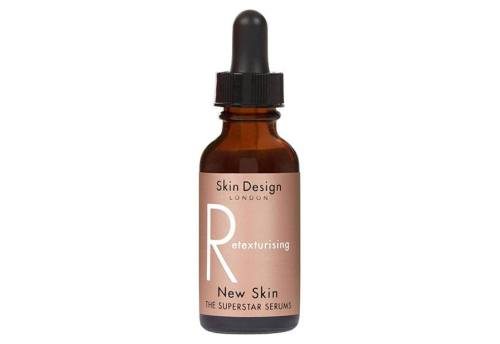We’re happy to report that retinol just got a promotion. The long-beloved ingredient, known for stimulating collagen production and increasing cell turnover still has those skin-care benefiting skills on lock, but nowadays, it’s stable enough to play nice with other ingredients. In its last performance review, we let retinol know that despite the glow-up that happens courtesy of speedy cell turnover and enhanced collagen synthesis, the negative side effects kept us from using it 365. And after some soul-searching, it got the message.
So without further adieu, please meet the new-and-improved class of retinol, which we’ll call retinol-plus. It’s just what it sounds like: retinol, plus other skin-care ingredients that make it work hard, perform better, and keep irritation at bay. “To be able to use a retinol correctly, you’ve gotta use it every day. And most people can’t use a retinol because of the inflammatory properties, so by getting that combination product you’re decreasing the inflammation, so you’re increasing the amount you can tolerate it every day,” says Virginia-based dermatologist Lily Talakoub, MD.
Even if you’ve never dipped your toes into the wonderful world of retinols before, here are four “retinol plus“ formulations—as in, retinol plus something else skin-satisfying—that will have you ready to dive right in.

Retinol + cannabis sativa seed oil:
Because retinol can be irritating (hence why it can potentially leave you with a dry, red rash), the antioxidants in cannabis sativa seed oil help to calm things down when the two are combined. “I like it separately, but I don’t mind using it together,” says Dr. Talakoub. She recommends topping your retinol with a CBD oil, which is the most natural and powerful preparation of the compound, but notes that a combo product works just fine—especially if you’re looking to streamline your routine. While Peter Thomas Roth Green Releaf Therapeutic Sleep Cream ($65) contains a two percent retinoid complex, it opts for cannabis sativa seed oil (rather than straight CBD) to calm skin at the same time in one step.

Retinol + other hydrating oils
Give retinol a botanic boost with anti-inflammatories like marula oil, argan oil, and rosehip oil, all of which are known for their nourishing properties. One more plant-based ingredient worth looking out for on the label? Green tea. “It decreases redness. One of the side-effects of retinol can be redness, so green tea clamps the blood vessels down so you don’t get as irritated too,” says Dr. Talakoub. Mara Evening Primrose + Green Tea Algae Retinol Oil ($120) is packed with plant oils, plus smells (and feels) like pure luxury when you apply.
This Parisian Skincare Brand Is Launching in the United States for the First Time—Here’s What a Derm Wants You to Know

We’re Calling It: Cleansing Balms Are the Face Wash of the Future—Here Are 3 to Add to Your Cart

This Is the One Product That Scarlett Johansson Always Keeps in Her Purse and on Her Bedside Table


Retinol + hyaluronic acid
If you’re worried about how your skin is going to react to retinol, your best bet is to find a product that combines it with some sort of a hydrating ingredient. “Hyaluronic acid, another natural ingredient, is calming on the skin and it’s hydrating, it holds moisture on the skin so you don’t get as irritated,” says Dr. Talakoub. “Squalane is also a hydrator of the skin, so adding squalane to it—which is a natural fatty acid—can help decrease the irritation too.” Senté Bio Complete Serum ($192) is packed with hyaluronic acid, which will help your skin hold water while the retinol’s working to rejuvenate from the deeper layers of skin.

Retinol + alpha-hydroxy acids
When I first came across Skin Design London Retexturizing Serum ($125), which touted retinol and AHAs (lactic and glycolic acids, to be more specific) on the same label, I was convinced that it would be too much for my skin. (You can’t use those ingredients together, right?!) According to bth Dr. Talakoub, you can—as long as they’re padded with a whole bunch of other nourishing ingredients, too. In addition to its high-impact ingredients, this serum is also made with sea algae and squalane to moisturize. This particular retinol is encapsulated (meaning it’s protected and ready to sink deeper into skin), making it more tolerable. Unlike the other “retinol-plus products” out there, this combo isn’t necessarily the most calming, so be sure to patch test before applying .
If retinol still isn’t working for you, try bakuchiol—the plant-based retinol alternative W+G editors (and the rest of the beauty community) has been obsessing over. And here are four other ways to offset dryness, just in case.
Sign Up for Our Daily Newsletter
Get all the latest in wellness, trends, food, fitness, beauty, and more delivered right to your inbox.
Got it, you've been added to our email list.








